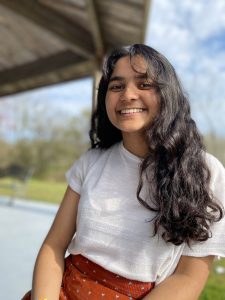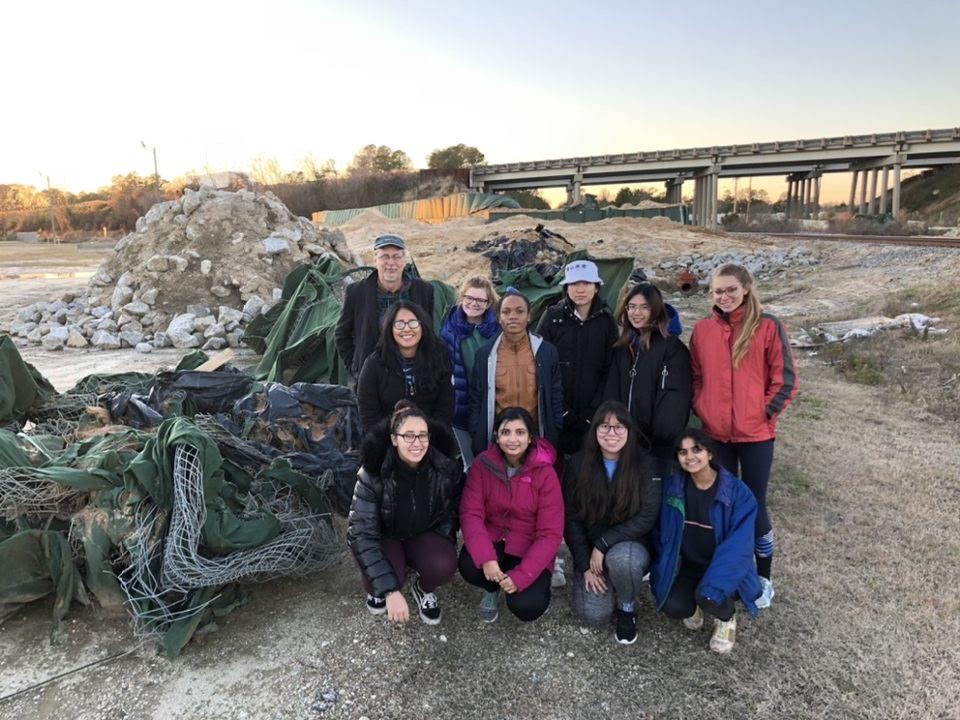Written by Shatera McNair, APPLES Summer 2020 Undergraduate Fellow

Before enrolling at UNC-Chapel Hill, Juhi Modi grew up in the suburbs of Cary, North Carolina. Modi had little exposure to rural areas and doubted that a service-learning experience in rural Robeson County would change their life. They quickly found that those assumptions were wrong.
Modi participated on an APPLES Service-Learning Alternative Winter Break (AWB) in Pembroke, where they and their peers saw firsthand the local effects of state and federal policies in many different spheres, including healthcare, economic empowerment and climate disruption. In particular, Modi witnessed the widespread impacts of Hurricane Matthew and Florence on local residents of color.
“Seeing the tangible effects of environmental racism and how this community has disproportionately been affected by climate change was a formative part of my service-learning experience,” Modi said.
APPLES’ Alternative Breaks program immerse students in communities across North Carolina to explore a focus area with community partners. The breaks are structured so that students learn about new cultures, carry out meaningful service, reflect upon their experiences and explore important issues relating to the community.
After meeting several community partners, organizers and activists engaged in the ongoing fight to uproot policies that destroy the environment, Modi sought to collaborate with these efforts to fight against environmental injustice.
“I wanted to return to Pembroke to re-engage with the community partners we had met because I wanted to support their work in any way possible,” they said. “I knew that there was so much more to learn about Robeson County and its people’s experiences.”

Thus, this summer, Modi has worked directly under Reverend Mac Legerton, an organizational leader that they met during AWB, at the Robeson County Cooperative for Sustainable Development (RCCSD). Modi’s summer was funded through a grant APPLES made available to students in response to the COVID-19 pandemic.
So far, Modi’s work has focused on environmental justice research and advocacy.
“For one project, I researched the environmental health of Robeson County and created a report on the link between the many environmental hazards and the adverse health outcomes of the county,” they said.
Modi plans on continuing the internship throughout the school year with the RCCSD and the Southern Vision Alliance by working on virtual development and implementation of the Disaster Survival and Resiliency School (DSRS). The school will address the needs of communities of color, low-income areas and rural communities, which are disproportionately impacted by the COVID-19 pandemic and natural disasters that result from climate change.
Modi has found in their environmental justice work that the poor health of the county’s residents and high level of pollutants in the county together point to environmental racism in the form of companies consistently taking advantage of the community’s limited political powers.
“I have learned so much from reconnecting with the community partners we met during AWB, and it feels meaningful to continue learning from and working with them throughout the summer and school year.” Modi said. “This experience has been so formative and has surely shaped my goals for the future.”
